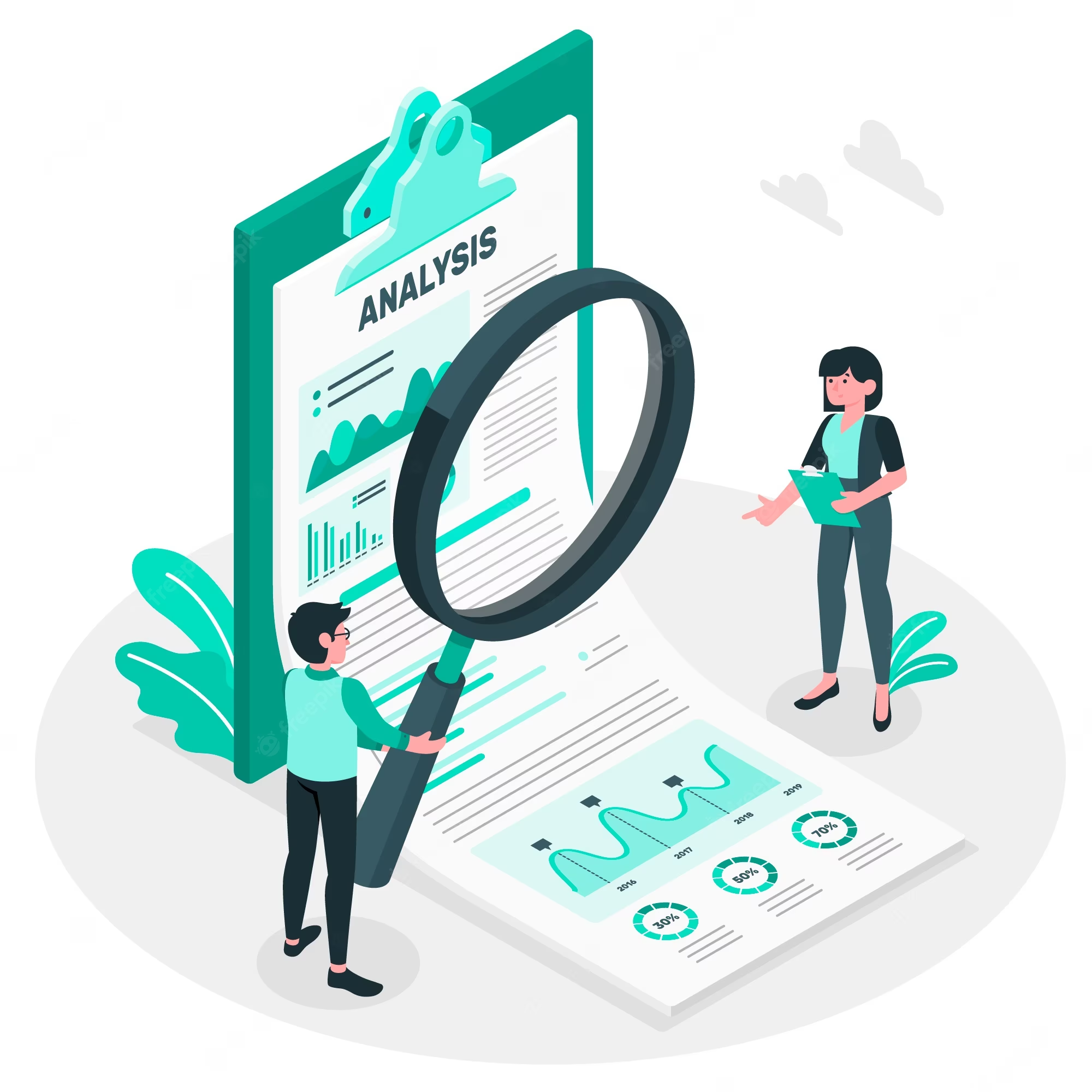Ranging Solutions For Due Diligence In Every Function
Financial Due Diligence
Financial due diligence focuses on validating the financial information presented and assessing the business's fundamental performance in terms of profits, assets, liabilities, cash flow, debt, management, and so on.
Commercial Due Diligence
Attempts to comprehend the market by reviewing market circumstances, sector-specific regulations, competition analysis, product or service evaluation, or any other commercial factors the user desires to study.
Operation Due Diligence
Consideration of non-financial (operational) aspects of an investment decision, which may involve an assessment of systems and procedures, a review of the existing management team, workforce numbers, and other HR operations, or insurance arrangements and risk assessment.
Legal due diligence
An investigation of any legal risk related to the rights and duties of the investment choice. Typical issues include property ownership, intellectual property, and employment disputes.
Vendor Due Diligence
Vendor Due Diligence seeks to obtain reasonable trust in the vendor's financial capability and corporate governance processes. Businesses do vendor due diligence before entering into any agreement or contract with them.
Tax Due Diligence
Tax due diligence includes assessing the tax impact of a 'change in control,' assessing past tax exposures, finding tax-saving options, assessing the current tax status, and assessing alternative modalities of tax-neutral transaction structure.
Human Resource Due Diligence
Examines the influence of human capital by evaluating the credentials, technical competence, and work initiative of the target firm's top management and key individuals.
Why Do Businesses Need Due Diligence & Auditing?
Due diligence will always be a crucial component of mergers and acquisitions, particularly as transaction stages conclude.
01
Helps in business dealings
The due diligence procedure investigates the target company's financial issues, allowing you to negotiate a better price. You can typically negotiate a better bargain if you already know how a firm runs and the specifics of all its financials.
02
Boost transparency
Many businesses try to conceal papers that might harm their firm and cause them to lose money. As a result, this method aids in giving transparency for both the buyer and seller, allowing both sides to reach an agreement.
03
Reduce Your Risks
Without going through the due diligence procedure in mergers and acquisitions, the purchaser's risk increases. This method will inform you of all the pros and drawbacks of the firm, which will greatly lower the danger of entering into a commercial transaction.
04
Recognizing challenges
Knowing the weaknesses of the target firm before entering into an agreement is critical, since they may be remedied before entering into an agreement. If you are buying or selling a firm, the due diligence procedure might assist you detect the target company's shortcomings.
05
Providing financial details
Knowing a company's financial information The financial due diligence procedure assists in presenting the target company's true financials and in learning about the company's financial issues.
Seamless Process For Due Diligence
Due diligence is the process through which purchasers thoroughly comprehend the target company in mergers and acquisitions.
Examine the Project's Objectivesy
The first stage, like with every project, is to define company goals. This assists in determining the resources needed, what information you need to gather, and ultimately ensuring alignment with the firm's overall strategy. This includes introspective inquiries about what you hope to achieve from this inquiry.
Financial Analysis of a Business
This is a thorough audit of financial documents. It guarantees that the papers described in the Confidentiality Information Memorandum (CIM) are accurate. Furthermore, it aids in assessing the company's asset health, assessing overall financial performance and stability, and detecting any red flags.
Thorough examination of documents
This process begins with a two-way dialogue between buyer and seller. The buyer requests relevant papers for audits, interviews or surveys with the seller, and site visits. Overall, the buyer acquires a greater grasp of the company as a whole and can more accurately assess long-term worth.


Business model analysis
Here, the buyer focuses on the target company's business strategy and model. This is done to determine viability and how well the firm's model would merge with theirs.
Creating the final offer
Individuals and teams cooperate to discuss and assess their results after gathering and analyzing information and documents. Analysts use the data they acquire to undertake valuation procedures and processes. This validates the ultimate monetary amount you are willing to offer during the discussion.
Handling risks & assessments
Risk management entails taking a comprehensive look at the target firm and projecting any hazards linked with the acquisition.
Types Of Due Diligence Transactions
Acquisitions & mergers
Due diligence is performed from both the seller's and the buyer's perspectives. While the buyer investigates financials, lawsuits, patents, and other pertinent information, the seller focuses on the buyer's background, financial capacities to complete the deal, and ability to fulfill pledges made.
Public Offer
Aspects of making a public offer include decisions on public issues, disclosures in a prospectus, post-issue compliance, and other similar things. Normally, this would need due diligence.
Partnerships
Due diligence is performed for strategic alliances, strategic partnerships, corporate coalitions, and other types of collaborations.
Collaborations & joint ventures
When one corporation joins forces with another, the company's reputation is at stake. Understanding the other company's position and assessing the sufficiency of resources at their end becomes critical.
Why Choose Aristotle Tax Consultancy For Due Diligence & Auditing Services?
Improving Delivery Quality
At every level, our service offerings are driven by quality and feedback. We endeavor to serve our clients with high-quality, value-added services.
A Client-Centered Approach
The client is the primary motivator behind our service offerings. Our approach to service offerings is client-centered and personalized.
Collaborative Work
Our team is made up of specialists, professionals, and support personnel from a variety of academic, cultural, social, and ethnic backgrounds.
Rapid turnaround
To provide timely services to our clients, we constantly strive for a rapid turnaround time, supported by an experienced and client-focused support team.
Categories Of Due Diligence Reporting
Our due diligence consultants make sure to provide reports for every type of transaction. They encourage transparency while providing business-friendly solutions according to their needs.
IT Capabilities
Identifying your company's existing security threats or other IT issues is another method investors evaluate your company's worth. Depending on the industry you represent, this may be an important element to consider when evaluating your company.
Environmental Considerations
Certain environmental concerns may be related to company activities for particular firms. Due diligence teams should analyze such possible hazards and how they influence the organization now and in the future in this scenario.
Financial Information
The majority of organizations spend the majority of their due diligence time reviewing and verifying financial reports. All paperwork and accounting information should be current and precisely reflect the numbers revealed throughout the deal-making stage.
Legal Reviews
Another key aspect of due diligence is determining if the company being bought has any possible liabilities. Depending on the size of the firm, legal teams may be required to investigate present relationships and contracts to verify there are no anomalies before proceeding.
Corporate Sustainability
Cash flow management and long-term business sustainability are critical components of M&A due diligence. A thorough examination of prior years' sales data can assist potential purchasers in diagnosing trends and determining if their investment is profitable.
Get rid of all the hassles for ensuring quality auditing and due diligence for your business by partnering with us.
Share your requirements
